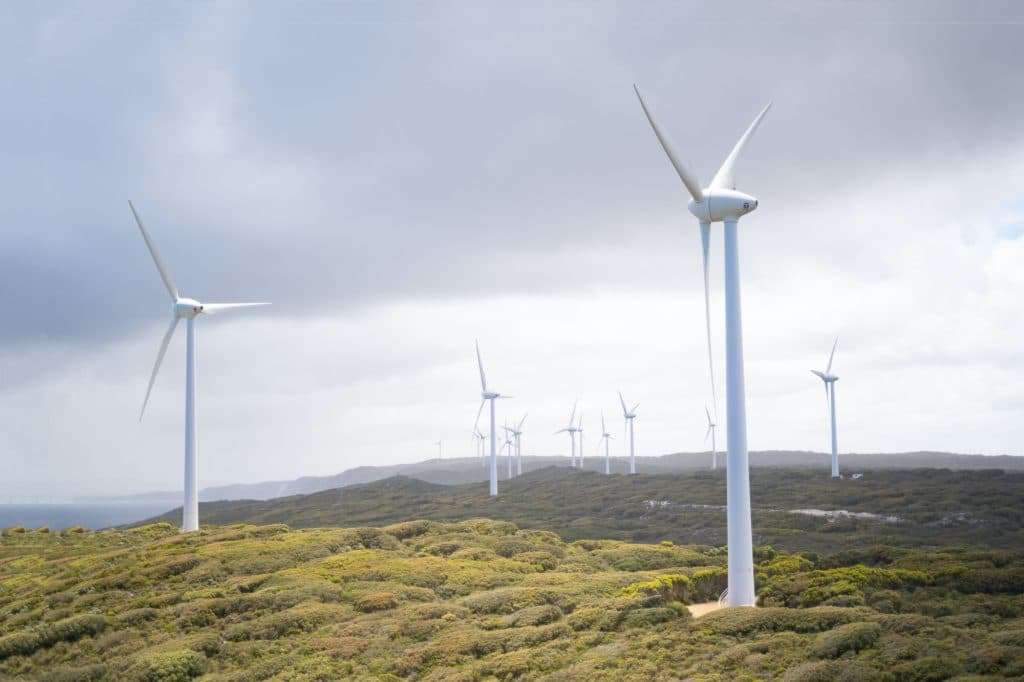The Net Zero Asset Managers Initiative is pledging aggressive net-zero emissions targets via $16 trillion in managed assets even as signatories face backlash over ties to fossil fuels.
After launching in 2020, the Net Zero Asset Managers Initiative now says it’s pledging $16 trillion of its assets toward achieving net-zero greenhouse gas emissions by 2050, if not sooner. The pledge represents 39 percent of total managed assets. There are now more than 270 signatories including Allianz Global Investors, BlackRock Inc. and Royal London Asset Management.
According to the group’s most recent report, members manage more than $61 trillion; 83 investors representing $42 trillion in assets have set climate targets. The 2050 net-zero commitments span 39 percent of those funds—an increase of four percent over November when the targets were initially published to overlap with the COP26 conference in Glasgow.
Net Zero Asset Managers Initiative
“While there is some way to go, that $16 trillion of assets are now committed to be managed in line with achieving net-zero by 2050, is a more than positive start – although targets must of course still translate into action,” Stephanie Pfeifer, CEO at the Institutional Investors Group on Climate Change, said in a press release accompanying the report.
The Net Zero Asset Managers Initiative was launched to hit the 2050 goal of net-zero emissions in an effort to keep global temperatures from surpassing 1.5°C above pre-industrial levels. But the group says it could reach that target sooner, as signatories are required to set interim targets for 2030. Those targets must be reviewed every five years with their asset pledges increasing to meet those targets up to 100 percent.

“Climate is a risk that can’t be divested from, so investors will need to use their influence over capital flows, their influence on companies and their voice to policymakers to speed up the transition to a net-zero global economy,” said Rebecca Mikula-Wright, CEO of the Asia Investor Group on Climate Change and the Investor Group on Climate Change.
Twenty-four of the signatories are committing 100 percent of their assets to the target, and 19 more have committed more than 75 percent of their managed funds to the target.
Last month, T. Rowe Price joined the initiative; it manages more than $1.55 trillion in assets, recently bumping into the top three asset managers behind Vanguard and Fidelity.
“A growing number of our clients are setting net-zero targets and require products that meet their needs,” Rob Sharps, CEO and president of T. Rowe Price, said in a statement.
“In establishing a net-zero product range we want to promote a common industry standard, which we believe will ultimately provide better transparency for our clients,” said Maria Elena Drew, a director of research for Responsible Investing at T. Rowe Price. “It is our intention that our net-zero investment products will utilize the Paris Aligned Investment Initiative Net Zero Investment Framework, which is designed to allow for real economy transition to net zero.”
Asset manager controversy
The Net Zero Asset Managers Initiative’s latest announcement comes on the heels of a report released by Little Sis and the Action Center for Race and the Economy—two accountability groups taking aim at Fidelity Investments and its ties to fossil fuels. Fidelity was an early signatory of the Net Zero initiative.
Fidelity is the third-largest asset management firm in the U.S. behind Blackrock and Vanguard; it manages more than $4 trillion in assets.

The report claims the privately held family-owned company has not received the same scrutiny as Blackrock and Vanguard for their records on climate action. Fidelity is owned by the Johnson family, with 60-year-old Abigail Johnson, granddaughter of the late Edward C. Johnson II, serving as CEO.
According to the report, the Johnson family owns Texas-based oil and gas company, Discovery Natural Resources. The report suggests executives at Fidelity may also be managing Discovery, which would be in conflict with the company’s pledge to reduce its emissions.
The report finds Abigail Johnson, as well as her brother Edward along with current and recent Fidelity executives Lane MacDonald, Gerard McGraw, and John Remondi, as managers of Star Horizon. That entity manages a company called Horizon Natural Resources Investors, which is a stakeholder in Discovery Natural Resources.
Nearly 80 percent of independent trustees who oversee two of Fidelity’s large umbrella funds valued at more than $2 trillion, also either currently or previously held positions as CEO or director for fossil-fuel-related companies. As well, those individuals in most cases own shares in those companies.
“The heights of power at Fidelity, whether it’s the family that owns the firm, or the trustees who govern and oversee trillions of Fidelity funds, are deeply intertwined with and personally profiting from fossil fuel operations,” said Derek Seidman, one of the authors of the report. “I think it means that Fidelity is massively conflicted when it comes to overseeing climate progress.”
But given that fossil fuels are still the dominant energy sources, experts say not having ties to the industries now would be an “awkward omission” for the trustees.

Michael Aalto, vice president of enterprise external communications at Fidelity Investments, says that “while trustees review the investment objectives, policies, and practices of each fund under its oversight, they do not make investment decisions, nor direct what securities Fidelity’s portfolio managers may or may not invest in.”
According to Robby Greengold, lead analyst of Fidelity’s asset management business for Morningstar, an investment analysis firm, portfolio managers “have discretion almost entirely to invest as they wish” and that “the trustees have not had any detectable influence on these portfolios.”
Prior to Fidelity’s participation in the Net Zero Asset Managers Initiative, a 2020 rating of asset manager engagement on climate change gave Fidelity a D rating, citing a lack of transparency over the contents and targets of its engagement on climate. InfluenceMap, the group behind the rating, said Fidelity was not “engaging companies on their lobbying activities and influence over climate change legislation.”


